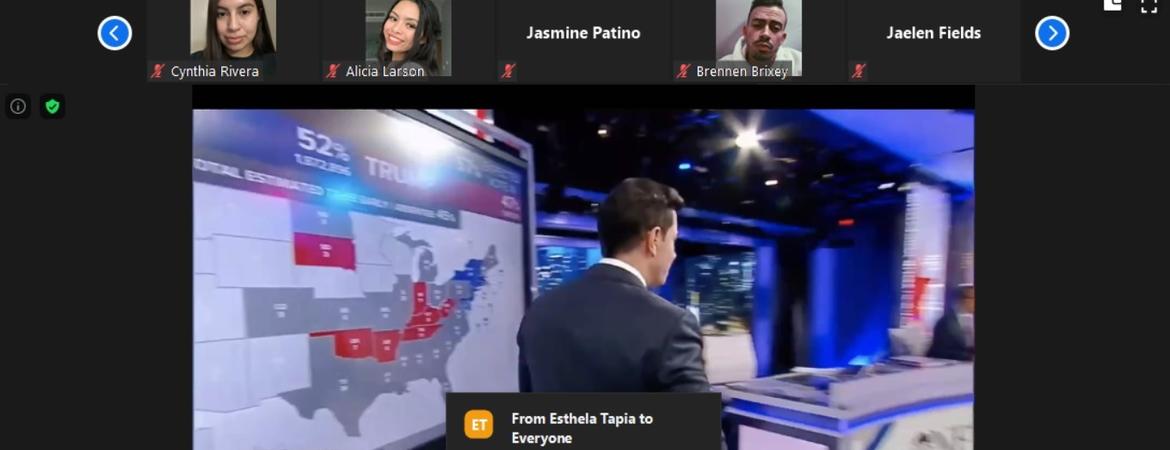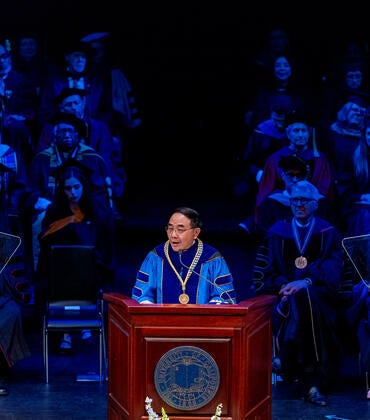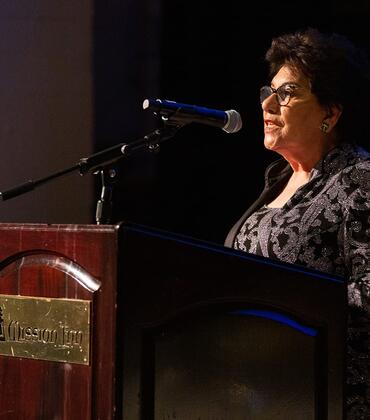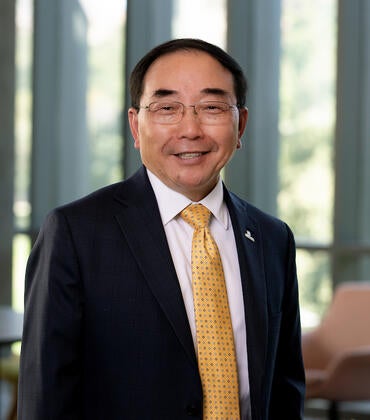
As election day morphs into election days, UC Riverside’s students are like voters red and blue alike: seeking comfort where they can find it.
“I think everyone wanted a definite result. We did not get that,” said political scientist Shaun Bowler.
In a Zoom session on Wednesday morning, more than two dozen students — some of them on the back end of sleeplessness — vented to staffers from UCR’s Student Affairs Case Management and Counseling and Psychological Services departments. The units hosted “The Civics Hour: Processing the Election” from 11 a.m. to noon.
“I voted yesterday. And today, I almost feel like I don’t have control,” said Wendy Isabel Ramos, a fourth-year anthropology and sociology major who was one of about two dozen students at the Civics Hour event. “I have this sense of frustration at a broken system.”
Several described the process as “a numbing experience.”
“We all have no clue how this is going to turn out,” said first-year theater major Killian Andrews. “This election can go either way and either way it does, there will be extreme civil unrest. As a queer person of color, it’s really scary to be out during this time.”
The night before, graduate students at an hours-long School of Public Policy election watch party shared concerns about post-election fallout.
“I think regardless of who wins, we are likely to see violence burst out on the streets,” said Alexa Mota Lopez.
“How long do you think before buildings start burning again?” Ethan Roesler asked.
Post-election angst isn’t likely to be assuaged soon. The prospect of no declared winner being named for days — or even weeks — lingers. President Donald Trump — down in the Electoral College on Wednesday evening but only slightly — threatened suits on many fronts. Recounts, at a minimum, seem a certainty.
UCR “worry and waiting” expert Kate Sweeny said stress level depends on how invested the voter feels, and the voter’s level of engagement.
“For the most engaged among us, it’s been downright terrifying,” she said on Wednesday. “Last night was brutal.”
Sweeny, a UCR psychology professor, has been in national media demand throughout the election cycle as voters wrestled with unprecedented anxiety. Postelection, she offers a variation of her advocacy for flow — the state achieved when one engages in an all-consuming activity.
“My advice is twofold: one, be patient. Sometimes democracy — little "d" — takes time. Two, stay busy, particularly with engaging tasks,” she said. “Resist the temptation to zone out, and instead get in the zone.”
Political scientist Bowler echoed the call for patience, saying this postelection cycle is likely to draw out like in 2000, when it was Dec. 12 before George W. Bush was declared the winner. “Things will drag out. If a court ruling is involved, then that will take a while,” said Bowler, who is also the Graduate School dean.
Do voters dare to venture into optimism? Will they introduce bad mojo, jinx their candidate? Managing expectations is also part of Sweeny’s research.
“Should I embrace optimism to get through the day, or prepare for the worst to make sure I’m not caught off guard? There’s no easy answer, but it’s unquestionably the case that optimism feels better,” Sweeny said.
That’s advice embraced by first-year student Andrews: “I know that we’re going to get through it.”
UCR’s Student Affairs Case Management and Counseling and Psychological Services departments distributed a “grounding techniques” flier at the Wednesday Civics Hour event. Among the tips:
• Exercise regularly or find ways to move each day. Ideas include going for a walk, hiking, yoga, cardio, biking
• Listen to music
• Spend time in nature
• Meditate/Progressive Muscle Relaxation/Diaphragmatic Breathing
• Practice being mindful (https://soundcloud.com/ucsdmindfulness/sets/short-meditation-sessions)
• Eat healthy and delicious food
• Sleep (restorative sleep)
• Give back to yourself what you give to others (loving kindness, empathy, compassion, etc.)



